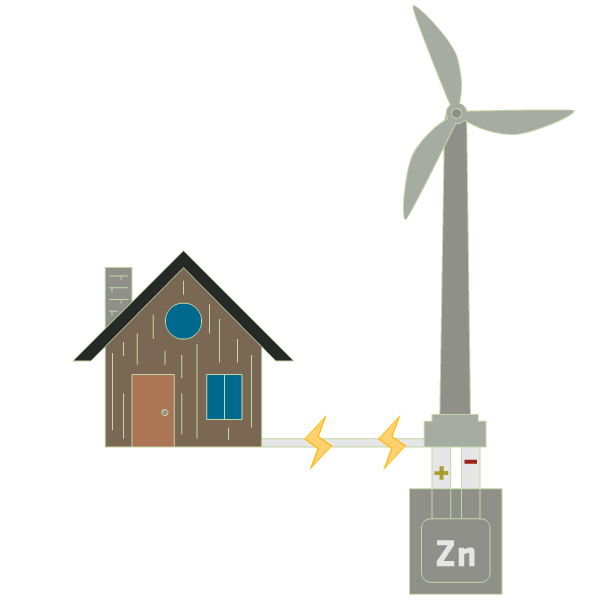Renewable power sources like wind and solar need large-scale battery arrays to store the generated energy and supply the electric grid when there’s no sun or wind. Researchers at Oregon State University have developed a solution for a better battery — one that’s efficient, safe, sustainable and economical for both utilities and consumers.
Production of today’s most widely used battery technology — using lithium-ion as the critical metal component — relies on shrinking supplies of two other metals, cobalt and nickel, without which the batteries would not function. Those rare metals, however, are toxic and can contaminate ecosystems and water sources if they leach out of landfills.
Zinc metal batteries are an energy-dense alternative to lithium-ion, made from a metal that’s both safe and abundant. Previously, these batteries have been limited, because of their poor recharging efficiency and a chemical reaction producing unwanted hydrogen, which greatly reduced their cycle life. But scientists led by Oregon State researcher Xiulei “David” Ji have resolved those limitations with one big breakthrough.
Ji and collaborators at the Massachusetts Institute of Technology, Penn State University and the University of California, Riverside have developed a new electrolyte for zinc batteries that raises their charging efficiency to 99.95%, competitive or even better than lithium-ion.
The new hybrid electrolyte uses water and a dissolved mixture of inexpensive chloride salts, eliminating the undesirable hydrogen reaction and extending the battery’s cycle life. Ji says the cost of electricity delivered by a storage facility using zinc batteries needs to support thousands of charge and discharge cycles to be competitive with electricity produced by fossil fuels. Rigorous testing indicates these batteries will.
“Zinc metal batteries are one of the leading candidate technologies for large-scale energy storage,” Ji says. “Our new hybrid electrolyte is nonflammable, cost effective and has a very low environmental impact.”
In addition to utility-scale solar and wind farm installations, zinc batteries offer a secure and efficient way for homeowners to store electricity generated by rooftop solar panels. They can also serve as energy storage modules for communities that are vulnerable to natural disasters.
It’s a powerful solution toward a clean energy future.



